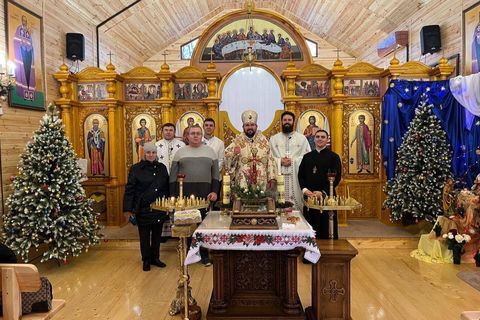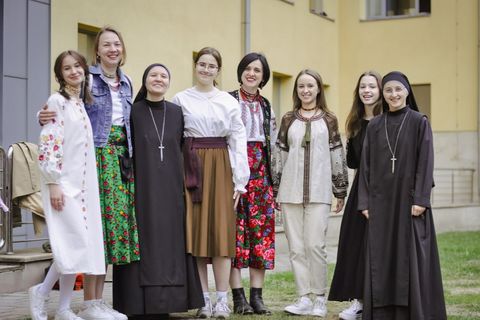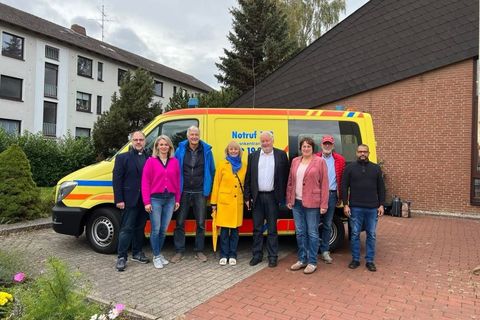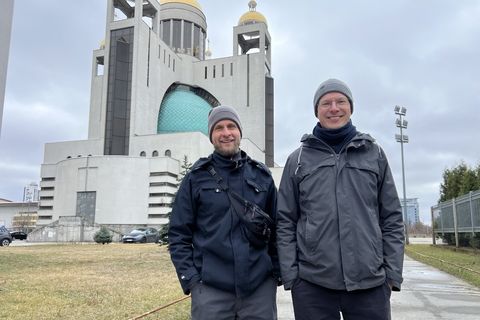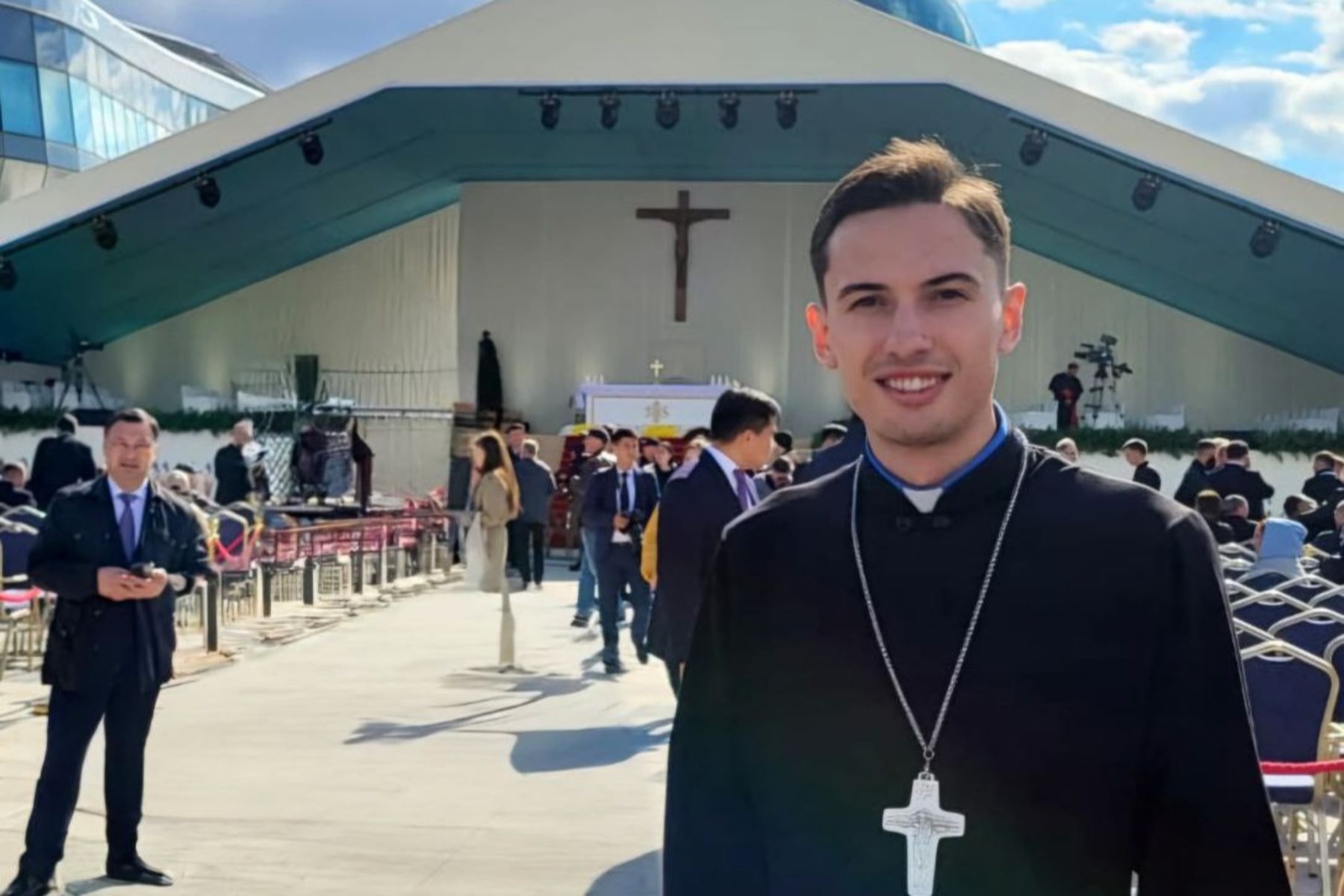
Father Andriy Nedostup about his ministry in Kazakhstan: “Your home is where the church is, where there are people entrusted to you”
Home. How much warmth, love, and hope this word implies. For Ukrainians, it is especially precious: some long for it, some are forced to leave it due to the war, and others have grown to love and guard their home with even greater devotion. The clergy of the Ukrainian Greek Catholic Church treasure their homes as well. Many of them travel outside Ukraine to serve their faithful in new homes around the world.
One of these priests is Fr. Andriy Nedostup, who immediately after graduating from the Ivano-Frankivsk Theological Seminary named after the Holy Martyr Josaphat went to Kazakhstan to serve God and Ukrainians.
In an interview with the UGCC Department for Information, Fr. Andriy spoke about his journey to Kazakhstan, adaptation in a Muslim country and the peculiarities of pastoral care.
“There I met people who long for a priest and deeply desire the presence of our Church.
— Father, you have been serving in Kazakhstan for seven years. What was it like coming there right after seminary?
— Once, when I was in my fifth year of study at Ivano-Frankivsk Theological Seminary, we were visited by the Apostolic Administrator for Catholics of the Byzantine Rite in Kazakhstan and Central Asia, Fr Vasyl Hovera. He described the country and the ministry there.
At first, I did not seriously consider the possibility of going to Kazakhstan. But soon I decided to participate in a summer camp and see the country and our Church there with my own eyes. It all happened quite quickly.
In 2016, I spent a month in Kazakhstan with another seminarian brother and visited most of our parishes. It was then that I understood how desperately people needed a priest. Although there were not many of them, their urge to attend our church left a great impression on me.
I decided to brave it. I thought that the enthusiasm would wane over time, but the desire to go persisted.
People around me used to joke that Ukrainians were once forcibly sent to Kazakhstan, and I was going there voluntarily, not considering other options.
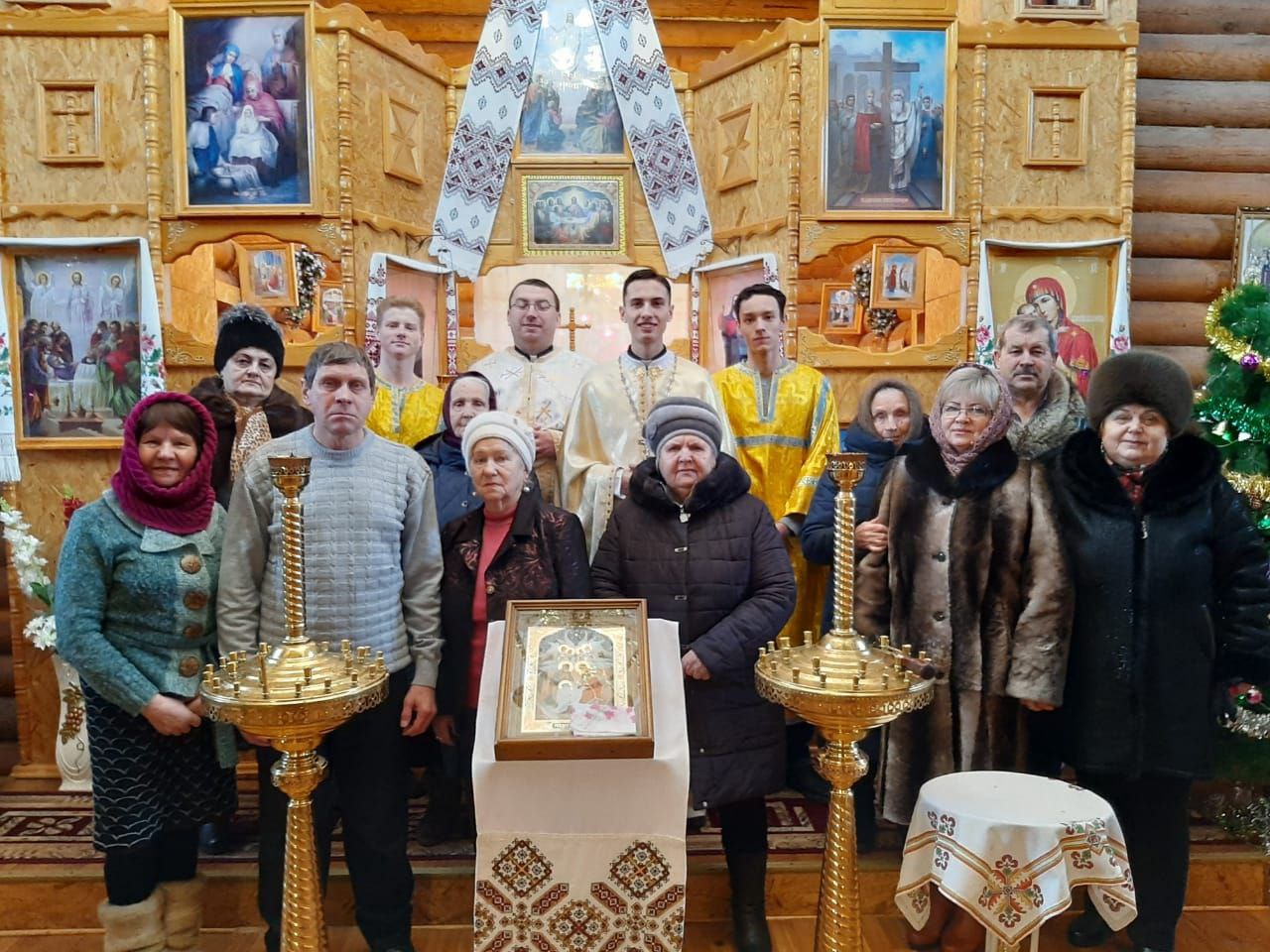
“I believe that through this vocation to a missionary service, the Lord means to teach me something or help me acquire the necessary traits for further pastoral work.
— What was your first ministry experience like?
— As you know, the Ukrainian Greek Catholic Church in Ukraine is vibrant and multifaceted. For example, in western Ukraine, where I come from, parishes have hundreds and sometimes thousands of faithful.
Arriving in Kazakhstan and being assigned to a parish of just 11 people was a stark contrast to the bustling parishes of hundreds or even thousands that I had known in Ukraine.
People often ask me: “Don’t you regret leaving?” This question is somewhat disheartening, because we, as priests, must always be ready for self-sacrifice. I believe that the Lord, through missionary service, helps me to acquire new traits for further pastoral work. It doesn’t matter whether the parish is large or small — the chief point is to remain faithful to the fundamental truths and fulfill our vocation where the Lord has placed us.
Now there are six parishes of the UGCC in Kazakhstan: in Satbayev, Almaty, Astana, Karaganda, Pavlodar and Shiderty. The largest parish is in Karaganda.
— How did you adapt to the new environment?
— This spring, in March, I will have been serving in Kazakhstan for seven years. Leaving home was not difficult, because I had already experienced this stage in the seminary. There we learn that home is a place where the church and the people entrusted to you are.
At first, I felt remote from my family, especially during major holidays, because we were used to gathering together for the holidays. I moved with my wife, though, and we supported each other.
The biggest challenge I faced was the language barrier. I had never studied Russian before, which made preaching and interacting with state institutions particularly difficult. Another challenge was the completely different mentality of the locals. In fact, you realize that you are in a Muslim country, which has its own customs and laws regarding religious activities. But the friendliness of the parishioners helped me very much to adapt.
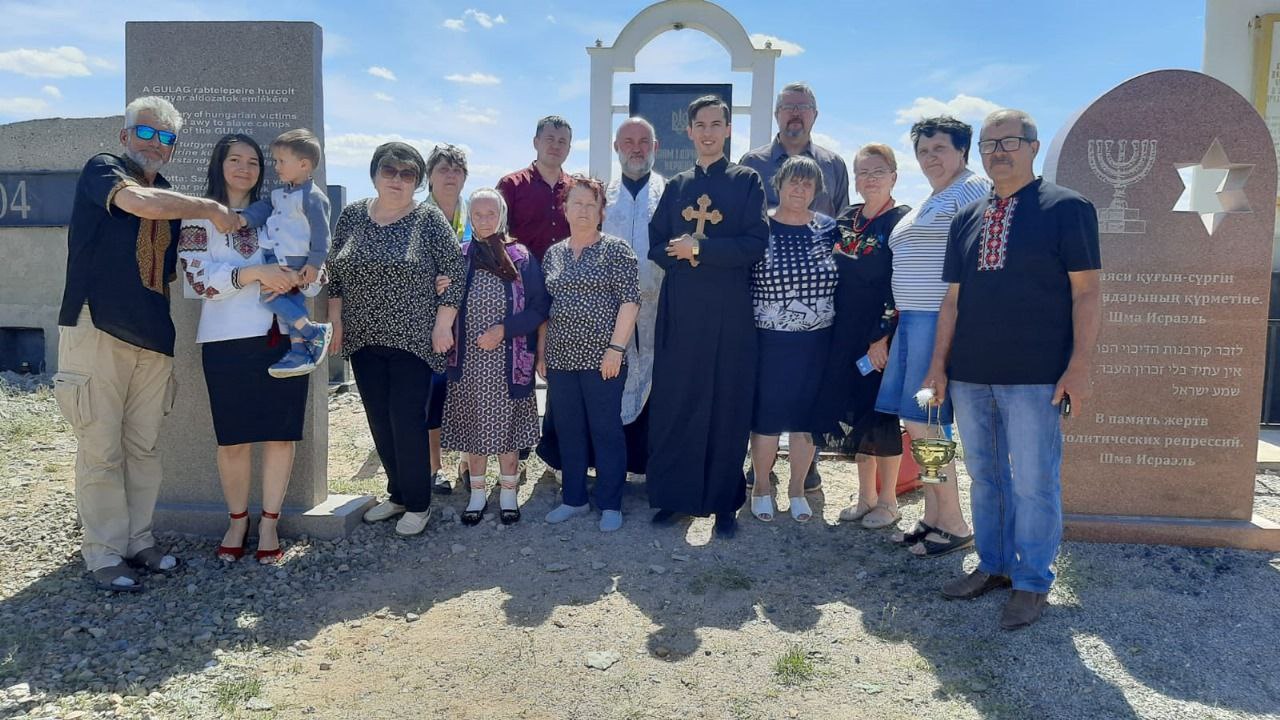
“It doesn’t matter whether it is a large parish or a small one, as long as we adhere to the important and necessary things wherever we happen to be.
— How does the UGCC parish where you serve live?
— Our parish has gone through significant changes in recent years. First, the COVID-19 pandemic and strict quarantine restrictions forced us to dismantle the church. This had a negative impact on people who had just started attending church and were gradually shaping this custom.
I serve in a fairly remote region: there is only one small town within 500 kilometers, and the rest is endless steppes. The lack of higher education institutions and jobs means that many people, especially Slavs, leave for big cities, which affects the number of parishioners.
The church is mostly attended by descendants of political repressed people — children of those who were born here. There are also those who came to the virgin lands. Some of them are former Komsomol members who once perceived religion as “opium for the people.” Over time, their lives changed, and perhaps due to the lack of communication with Ukrainians, they began to attend church, integrating into our community.
Each new person is precious to us, and their arrival brings us joy. However, it often happens that eventually they inform us that they are moving away. Parting is always painful, but you have to wish people a better life.
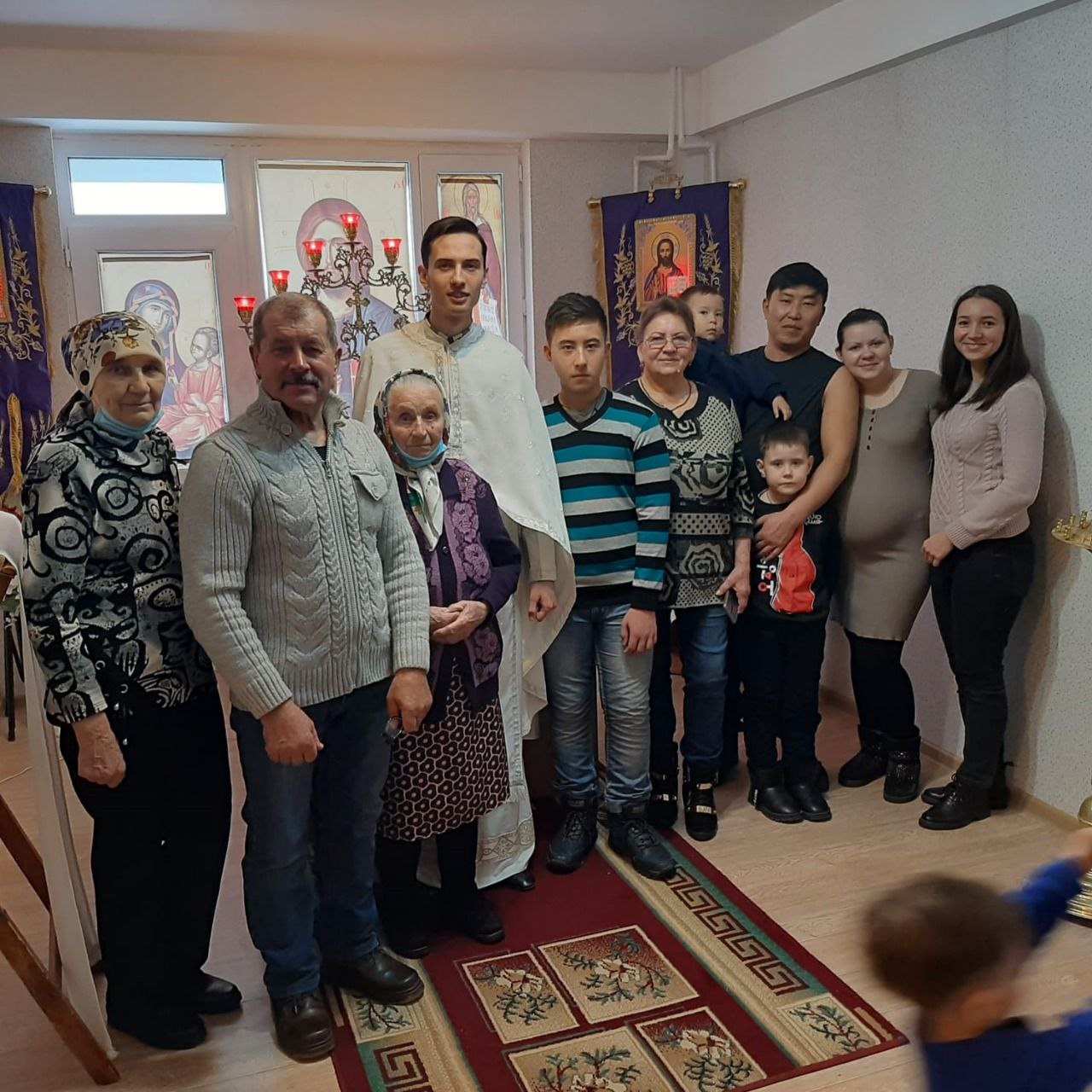
“While at the Ukrainian Center, I feel a part of Ukraine in the middle of the Kazakh steppe.
Our parish is mostly made up of people aged about 70. When I first arrived, the community was younger, we had more energy and were able to implement many initiatives.
Various events were held in our parish. There is a Ukrainian center in Kazakhstan, and our community often participated in numerous competitions, including Taras Shevchenko’s birthday, Ukraine’s Independence Day, and other important events. In fact, most of the participants in these events were our parishioners. While in this center, I feel a part of Ukraine in the middle of the Kazakh steppe.
Currently, Ukrainians comprise only 1.8 % of our region’s population.
“Kazakhs are not opposed to our Church: they do not disapprove of our prayers and existence because we are a multinational country.
— How do locals treat Ukrainians?
— Most Kazakhs are friendly towards Ukrainians. When you go out into the city or to the store, at first, hearing the accent, you feel a bit aloof. However, as soon as they find out that you are Ukrainian, their attitude changes. Then the contrast in communication is most noticeable, especially against the backdrop of the current tragic events in Ukraine. Kazakhs sincerely sympathize with us.
Since the beginning of Russia’s full-scale invasion, many Kazakhs have been supporting Ukraine by providing humanitarian, moral and other aid. Relying on my own experience, I can say that they wish for our victory.
There is a parcel fund for Ukraine functioning in Kazakhstan, through which we have been collecting and sending relief to Ukrainians. About a year ago, we sent 33 trucks with humanitarian aid.
The Kazakhs do not oppose our church — they do not disagree that we pray and exist in their country, because Kazakhstan is a multinational state. However, the issue of Kazakhs’ conversion to Christianity is a sensitive and problematic topic. Most of them are Muslims who firmly hold on to their religious beliefs. Therefore, the presence of a Kazakh in the Catholic Church is a rare phenomenon.
“People observe traditions on all holidays, keep them alive, and pass them on to each other.
— Father, are Ukrainian traditions, rites, and holidays preserved in Kazakhstan?
— We know that Ukrainian traditions are closely intertwined with church holidays, so even here in Kazakhstan people observe them, keep them alive, and pass them on to each other.
On Christmas Eve, we cook the traditional 12 lean dishes, sing carols during the services, and visit each other with carols. After the Liturgy, we also sing carols while sharing tea.
At Easter, everyone brings Easter eggs. On Ukraine’s Independence Day, parishioners come to church wearing vyshyvankas.
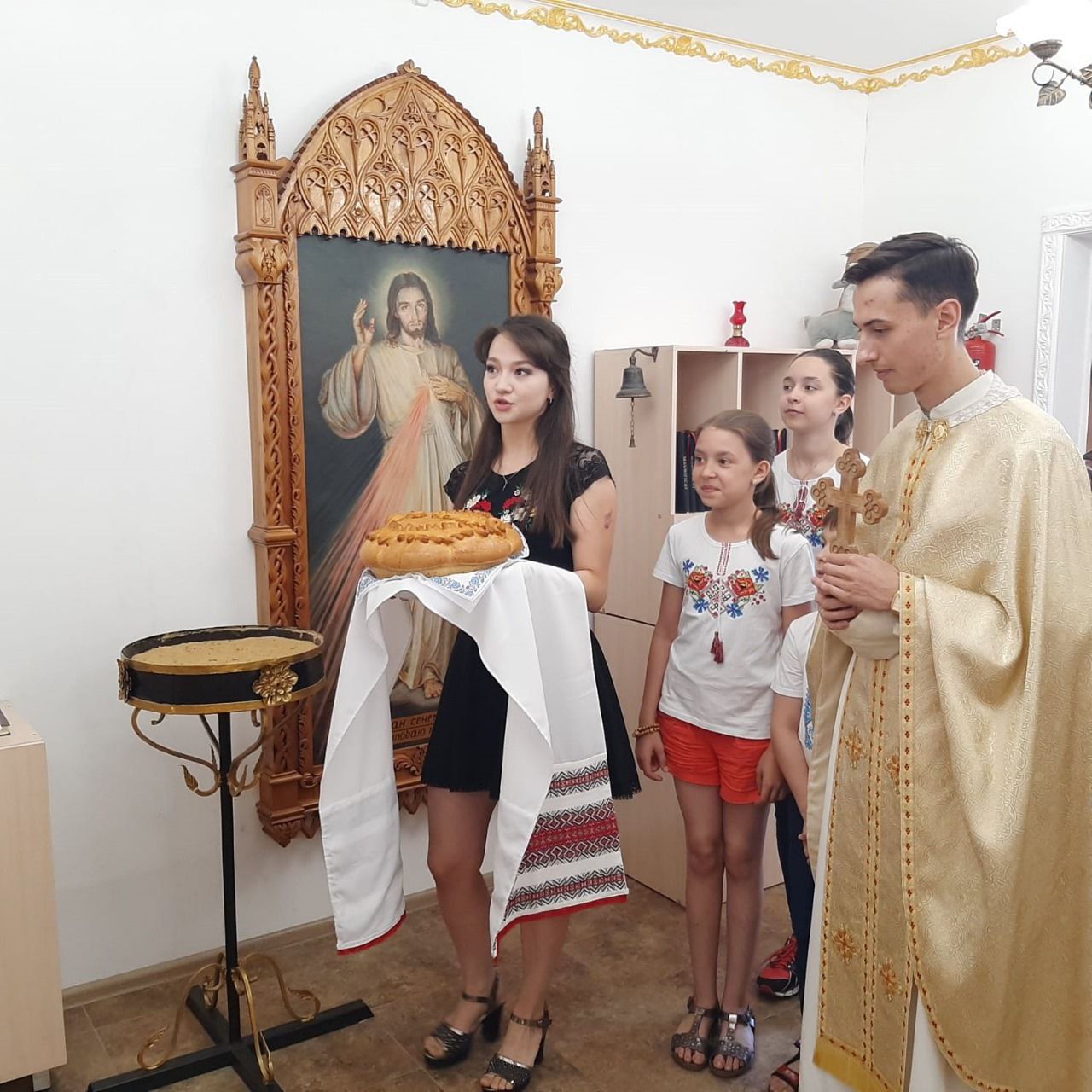
— Do locals participate in Ukrainian celebrations?
— Local Kazakhs usually do not come to our holidays. They are mostly Muslims, and many of them are unaware of their rights and opportunities regarding religion. Imams often tell them that they cannot enter the temple.
However, at Easter, you can often see Kazakh children visiting Ukrainian families, hoping to receive a pysanka or another festive treat.
In Karaganda, there is a Ukrainian Sunday school run by sisters. They teach children the Ukrainian language, customs and traditions, as well as organize various cultural events.
Previously, Fr. Vasyl Hovera invited Ukrainian language teachers from Ukraine to conduct a Ukrainian-language camp. There, everyone from Kazakhstan could get acquainted with Ukrainian culture and practice the Ukrainian language. Unfortunately, after the outbreak of the COVID-19 pandemic, it complicated the way people crossed the border, and this program was temporarily halted.
— Did many Ukrainians come to Kazakhstan due to the war? How do local Kazakhs react to these events?
— Kazakhstan is not a country where Ukrainians flocked to en masse because of the war. However, there are some individual stories, especially in large cities such as Almaty, Astana and Karaganda.
Specifically, in Almaty, the number of faithful of our Church has increased. Many of those who came try to attend church and are actively contributing to the life of the parish community.
— What plans do you have regarding the development of the parish?
— We are currently preparing for St. Nicholas Day, during which we will traditionally distribute gifts to children and parishioners for the Christmas holidays. We also continue our spiritual and pastoral activities aimed at supporting and developing the community.
Interview by Victoria MazurThe UGCC Department for Information
